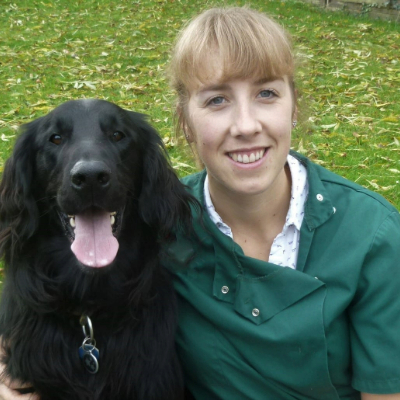How to spot the signs of grief in pets – and 5 ways to support them
A vet’s guide to supporting pets showing signs of grief

Losing a pet can be just as difficult as losing a family member, and feelings of sadness, loneliness and isolation are all very common. If you live in a multi-pet household, it can also be a challenging time for your other pets – not only have they lost a friend, but they may also pick up on changes in the familiar routine and dynamics of their home.
A study published in the journal Animals found that both cats and dogs are capable of grieving after the loss of an animal friend. Owners reported behavioral changes, such as increased attention-seeking and searching for their companion's old sleeping spot.
There are lots of ways you can support your pet, from keeping them busy with extra activities to using calming pheromones around the home. Below, vet Dr Rebecca MacMillan shares the signs of grief in pets, why pets grieve, and other ways you can help.
What are the signs of grief in pets?

Just like humans, the signs of grief differ for everyone – it all depends on their personality type and the relationship they had with the pet or person.
Dr MacMillan says they may show some or all of the following signs:
- Reduced appetite in dogs (or cats)
- Subdued or depressed demeanor
- Lack of interest in walks or play
- Whining, whimpering, or howling
- Wandering around, searching the house
- Sleeping more or less than usual
- Being clingier and more attention-seeking than usual
- Changes in grooming habits
- Changes in toileting behavior, including soiling inside the house
- Some may have no outward symptoms at all
Why do pets grieve?
Why do pets grieve? According to Dr MacMillan, losing a friend (whether it's another pet or a human) can have a "big impact" on some pets and can cause them to feel grief.
She explains: "Pets can be very sensitive to changes in routine and their environment. The loss of a pet, or a human family member, changes the dynamic in the household which can be very upsetting."
Get the best advice, tips and top tech for your beloved Pets
How can owners help a grieving pet?

If you’ve noticed your pet showing some signs of grief, Dr MacMillan has shared five ways you can support them:
1. Consistent routine: One of the best ways to help your grieving pet is by staying consistent in their regular routine. Animals can pick up on changes, which might lead to added stress.
2. Extra attention: Grieving pets are prone to anxiety or boredom, but you can help by giving them a bit of extra attention. Whether it’s taking your dog for an additional walk every day or adding a few more play sessions in the mix, it all goes a long way.
Other ideas include teaching them new tricks, attending an obedience class, or giving them a puzzle toy to keep their brain ticking. You might want to read our guide to the best dog puzzle toys or the best cat puzzle feeders, which are tested and approved by us.
3. Pheromones: If your pet is feeling stressed, you can use sprays, diffusers, or collars that mimic natural pheromones, which send positive messages to them.
4. Visit a vet: While symptoms like reduced appetite, depression, and toileting changes might be signs of grief, they can also indicate underlying health issues. It’s important to have your pet checked by a vet as soon as possible to rule out any problems.
5. Don’t rush into a new pet: Dr MacMillan strongly advises against rushing into getting a new pet, as it could just cause additional stress. Give yourself and your pet time to grieve, and carefully consider whether adopting another animal is the right long-term decision.
How long do pets grieve for?
The grieving period is an individual process, so its length can vary depending on the pet’s personality and their relationship with their companion.
However, a study published in the journal Animals found that cats and dogs showed behavioral signs of grief for a median duration of less than six months.
Dr MacMillan explains: "It may last just a few days or weeks for some animals, or several months for others. There is no defined period, just as people all experience grief in different ways too. If your pet is experiencing physical changes like weight loss or ongoing behavioral issues then you must speak to a professional."
Read next: How to cope with the loss of a pet and tips for coping with the death of a pet

Rebecca is a veterinary surgeon who graduated from the Royal Veterinary College in London in 2009. She enjoys medicine in particular and she is proud to have achieved a BSAVA postgraduate certificate in small animal medicine (with commendation) from Nottingham Trent University in 2021.
Edited by Georgia Guerin and Alexis De Leaver.
This page was last updated in June 2025 by Megan Milstead.

Megan is a Staff Writer at PetsRadar, covering features, reviews, deals, and buying guides. She has a wealth of experience caring for animals, having grown up with dogs, cats, horses, guinea pigs, and more throughout her life. She studied BA Journalism at the University of Westminster, where she specialized in lifestyle journalism and was editor of Smoke Radio’s lifestyle website. Megan works alongside qualified vets and accredited trainers to ensure you get the best advice possible. She is passionate about finding accurate and helpful answers to your pet-related questions.
